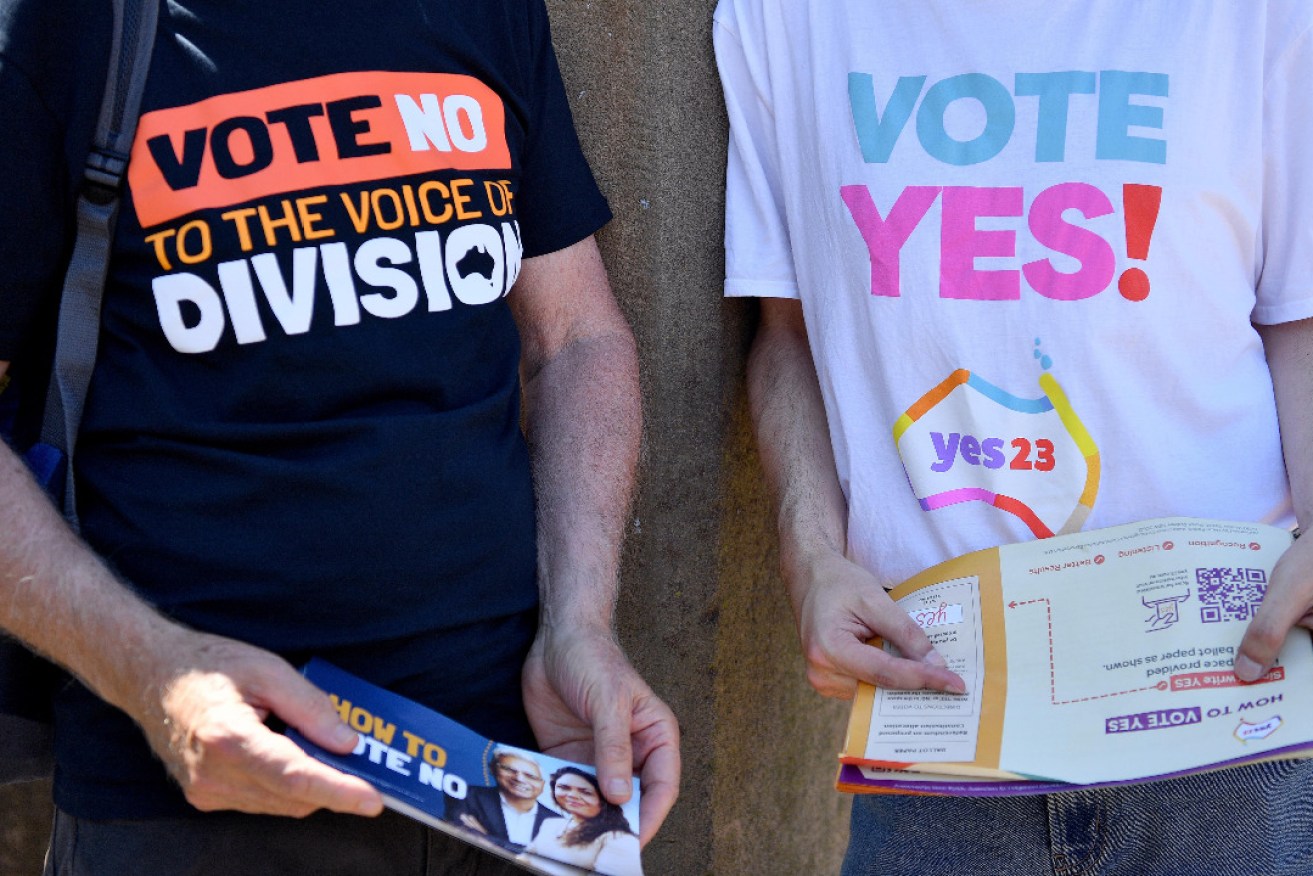Ali Clarke: The year we collectively lost it
This year will be seen by future generations as the moment Australians lost our ability to meaningfully discuss important topics, argues Ali Clarke.


Photo: AAP/Bianca De Marchi
Long after most of us are dead and buried, how do you think people are going to look back on 2023?
What will they say we’ve done? How will we be judged? Will they understand the choices we’ve made?
Were we mature adults: clear viewed, carefully weighing up both sides? Or were we children: blinkered and blithely led by the bigger kids in the schoolyard?
Did we look to the future, whilst acknowledging the past and will they think we’ve done the best job we could have, with everything we had?
Most importantly, will 2023, be the defining moment where the future-yous will say, “that was the year they completely lost it”.
For me, I just can’t escape the answers will be no, no and yes.
Whilst some of us have been on the long lament on the decline of our ability to meaningfully engage with people who think differently to us, the build-up to The Voice referendum has put the nail in our collective coffin.
It has become clear that we have reached a point where we no longer seem capable of engaging in anything more nuanced than a stand-up slanging match.
We, as in the collective “we”, have been called everything from virtue signallers to racists and I don’t think I can remember a time in my living history when we were this divided.
In fact, I know if I declare which way I’m going to vote right now on this page, I will lose a good portion of you, who will write off anything further I have to say, just on the basis of one word, but is that how it should be?
Of course not.
This is about the fact that we need to change the way we engage with what’s important.
The power of any group, any community, any civilisation, is their ability to consult and consider. We can only ensure we don’t repeat our mistakes if we find a respectful, if not always harmonious, way to share and debate ideas that acknowledge and learn from past experiences.
We have lost that, and I can’t shake the devastating feeling that we’ll not be able to get it back unless there are wholesale changes to the way we approach, value and determine what is leadership.
To be clear, this is not a lecture about the good old days – in fact, one could argue it’s the “good old days” that have led us directly here without passing Go and collecting $200.
I also acknowledge that we all go through the lifecycle of having to listen to Great Uncle Bob telling us kids how things were so much better/harder/simpler/cheaper/safer in his day, only for us to wake up some time later and realise that we have become our very own version of Great Uncle Bob.
But information is power, right?
In 2023, we have more information at our fingertips than we’ve ever had before but, to paraphrase comedian Ronny Chieng, it seems the access to all of human knowledge has in fact made us dumber.
Yes, that’s courtesy of social media algorithms pushing us select material based on what we might have clicked once before, tripping us into a whirlpool of bias reinforcement. But we know this by now, so surely it’s incumbent on us to seek out the other side of any argument?
Surely it’s incumbent on us to seek out what is truth and what’s fiction?
But the vast majority of us don’t.
We’re busy, sometimes confused and, yes, maybe we’re sometimes lazy and a little bit stupid.
About 52 per cent of us use social media as a source of news – slightly behind the worldwide average of 55 per cent – and just under half of us say it’s our main reason for even logging on to these networks.
Whilst we’re still trailing the world average of 34.6 per cent, that’s still a lot of people who are getting their information in the space between a cute cat video and a picture of that woman-I-kinda-knew-from-high-school’s lunch.
Now add into the mix the advertising: the No Facebook spend in South Australia outstripping the Yes camp in the formative days of the campaign, with the last two weeks seeing the pendulum shift with the highest concentration of overall spend focused on Tasmania and herein SA.
That’s no real surprise I guess, considering the need of a double majority to change the constitution.
If three states vote “no” it makes perfect strategic sense that, as one of the smaller states, South Australian voters are targeted as there’s less of us to convince onto one side or the other.
But I digress.
Look, this is not yet another column trying to convince you which way to vote.
This is about the fact that we need to change the way we engage with what’s important.
More than ever before, we need to use a level of skepticism towards what we’re being told via some channels, yet at the same time, try to understand another’s view before shouting them down with our own.
Unless we do, I can’t help but feel 2023 will be looked on as the year we threw a tantrum in the back seat asking if we’re there yet – without any agreement on where we’re heading.
Ali Clarke presents the breakfast show on Mix 102.3. She is a regular columnist for InDaily.




